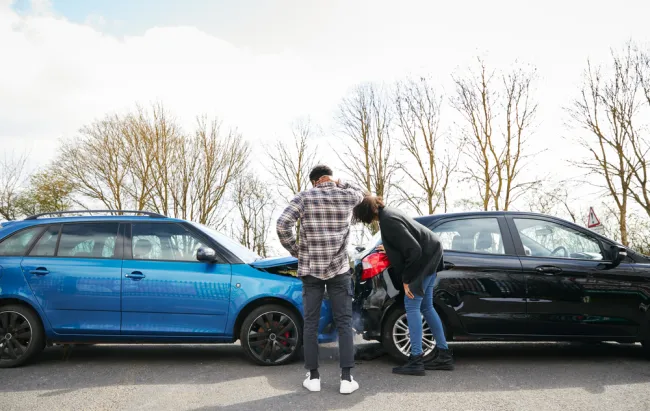Legally reviewed by Grant R. Gillenwater, Trial Attorney at Morgan & Morgan, on June 07, 2024.
Most people have experienced at least one car accident in their lives. With that experience, you know how challenging it can be to get a fair settlement from insurance companies. While they may seem concerned about your injuries, insurance adjusters work for the insurance companies, not for you. Their goal is to close your claim with the least compensation possible.
Understanding your rights is crucial, and an insurance adjuster won’t advise you as a personal injury attorney would. They aren’t obligated to maximize your settlement. You need to be aware of what you can ask for, including medical costs, pain and suffering, and lost wages. Every accident is unique, and so is the compensation you can claim. Let’s dive into the question, “What should I ask for in a car accident settlement?”
Know Your Rights: What Kind of Compensation Can You Receive?
You’re likely familiar with basic compensation types, such as medical bills and property damage. However, a severe car accident can drastically impact your life, leading to mountains of medical bills and an uncertain financial future. Under these circumstances, legal advice is essential. Without it, you might not account for future medical treatments and other life adjustments, potentially settling for far less than you deserve.
Understanding State Laws: Why Location Matters
State laws significantly impact the kind of compensation you can receive and from whom. Some states are "at-fault" while others are "no-fault." In an "at-fault" state, the driver responsible for the accident pays for the other party’s vehicle damage and medical expenses up to their policy limits. Beyond those limits, additional costs must be paid out of pocket.
In "no-fault" states, each injured party’s medical expenses are covered by their own PIP (Personal Injury Protection) insurance, while vehicle damage is the responsibility of the at-fault driver. The laws can be complex, so consulting with a personal injury lawyer can clarify the details for a successful settlement.
Passenger vs. Driver: Why It Matters
As a passenger, the driver is responsible for your safety. If they cause an accident, their insurance typically covers your injuries, depending on the state. In severe injury cases, you might need to seek further compensation through a personal injury lawsuit, especially if insurance policies are maxed out. Multiple passengers in an accident can exhaust insurance coverage quickly, sometimes leading to lawsuits to determine fair compensation.
If you’re a passenger and your spouse or close family member was driving, some insurance policies may have specific rules. You could be denied compensation if you willingly got into a car with a drunk driver or interfered with the vehicle’s operation.
What Should You Ask for After a Car Accident?
Car accidents can affect you in more ways than just medical bills. Here are the types of compensation you may be eligible to obtain:
- Property Damage: Even in "no-fault" states, you have the right to compensation for property damage, including your vehicle and other property damaged during the accident.
- Lost Wages: If your injuries caused you to miss work, you could be compensated for lost wages and benefits during this time.
- Medical Expenses: Serious injuries often result in ongoing medical bills. Compensation should cover ongoing care, treatments, special medical devices, and in-home care.
- Pain and Suffering: Compensation for physical pain and emotional suffering should be included in your settlement.
- Loss of Consortium: If your injuries impact your relationship with your spouse, you may be entitled to compensation for the loss of intimacy and companionship.
- Loss of Enjoyment: If your injuries prevent you from enjoying activities you once loved, this can also be compensable.
- Punitive Damages: In cases of reckless or intentional behavior, punitive damages may be awarded to punish the wrongdoer and deter similar actions.
Real Examples of Car Accident Settlements
Never settle until your treatment is complete, as this is the only way to understand the full scope of your monetary damages. On average, car accident settlements range from $14,000 to $28,000, but cases involving drunk drivers or other aggravating factors can yield higher amounts.
At Morgan & Morgan, we’ve secured settlements in the millions for our clients. For example, a recent case with a pre-trial offer of $500,000 was settled for $2.5 million with our representation.
Why the Type of Vehicle Matters
The type of vehicle involved in an accident can be a game-changer. If the at-fault driver was operating a commercial vehicle, such as an 18-wheeler, the injuries can be catastrophic, possibly leading to wrongful death claims. Commercial drivers and their companies must adhere to strict laws, and any negligence can expand your claim significantly.
Companies behind commercial drivers might be negligent in various ways, such as allowing overweight trailers, improper packing, or failing to maintain the vehicle. A lawyer can help detect such negligence, increasing your chances of a better settlement.
What’s Next?
Don’t pursue compensation alone. If you’re asking, “What should I ask for in a car accident?” you might miss out on compensation you’re entitled to. Insurance companies don’t work for you, despite what their commercials say.
With a Morgan & Morgan attorney at your side, you can expect better results, compassionate legal representation, and the guidance you need during this challenging time. We handle the heavy lifting, establish liability, and determine a fair settlement for your injuries. Best of all, we don’t get paid unless you do. Contact us today for a free, no-risk case evaluation.
